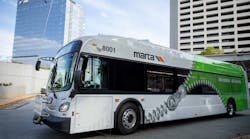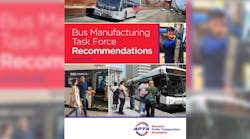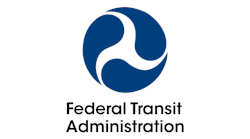L.A. Metro Board adopts new policy to bolster transit bus OEMS
The Los Angeles County Metropolitan Transportation Authority (L.A. Metro) Board of Directors have adopted a policy to bolster transit bus original equipment manufacturers (OEMs) by requiring that all future bus procurements reduce customization requirements, introduce new and early milestone payments and encourage other local bus agencies to participate. The policy aims to provide relief to OEMs through L.A. Metro’s Regional Zero Emission Bus (ZEB) Procurement Policy, as many bus manufacturers have stopped making buses.
“This is the first time [L.A.] Metro is partnering with transit agencies across L.A. County to buy new buses together. It’s an opportunity to pool our purchasing power while also supporting zero-emissions bus manufacturing jobs here in the U.S.,” said L.A. Metro Board Chair and L.A. County Supervisor Janice Hahn. “This is the sort of creative approach we need to get all of our transit providers closer to zero emissions, clean air future.”
The board also approved $49.84 million in state Zero Emission Transit Capital Program (ZETCP) funds for Los Angeles County Municipal Operators Association (LACMOA) member agencies to purchase ZEBs and charging infrastructure through the regional procurement, one of the largest in U.S. history increasing competition and interest among U.S. bus manufacturers. The ZETCP will allocate $320.6 million to L.A. Metro over four years for new ZEBs, charging infrastructure and facility modifications. L.A. Metro will distribute all four years of ZETCP funds to LACMOA member agencies in advance so they can use the funds immediately.
“[L.A.] Metro is deeply appreciative for the leadership of the Biden-Harris Administration in addressing the crisis in zero-emission bus manufacturing in the United States," said L.A. Metro CEO Stephanie Wiggins. “[L.A.] Metro and more than two dozen local transit operators need to purchase thousands of buy-america compliant electric buses over the next decade – but domestic manufacturing of these buses has not kept pace with demand. This coordinated approach between [L.A.] Metro and the LACMOA will support U.S. bus manufacturing and ensure that sufficient manufacturers remain in the market to meet California’s sustainability goals.”
On Feb. 7, 2024, Wiggins was a speaker at a White House Roundtable on Clean Bus Manufacturing that outlined specific steps transit agencies could take to bolster America’s zero-emission bus manufacturing capabilities. In addition to addressing reforms outlined at the White House Roundtable on Clean Bus Manufacturing, the Federal Transit Administration (FTA) has taken decisive steps to deliver robust federal funding to expand L.A. Metro’s fleet of zero-emission buses. In August 2022, the FTA provided a $104 million federal grant to L.A. Metro for the purchase and deployment of 160 battery-electric buses, as well as for the procurement and installation of enroute and depot charging stations.
The federal funding is enabling L.A. Metro to support the transition to zero-emission bus service on routes operating out of L.A. Metro’s Divisions 9 (El Monte) and 18 (Carson), including the J Line (Silver) bus rapid transit service. The grant is also funding related workforce development and training activities.
In June 2024, FTA provided a $77.5 million federal grant to L.A. Metro to help purchase dozens of zero-emission buses, install new chargers and expand workforce development training at Metro Bus Division 7 (West Hollywood).
L.A. Metro’s allocation of Los Angeles County Regional ZETCP funds can be used to replace transit vehicles with zero emissions, support associated fueling or charging infrastructure, facility modifications, and transit operations expenditures that demonstrate a reduction in greenhouse gas emissions. The regional procurement will help accelerate the region’s clean vehicle future, as well as ensure L.A. County communities receive reliable transit service.






